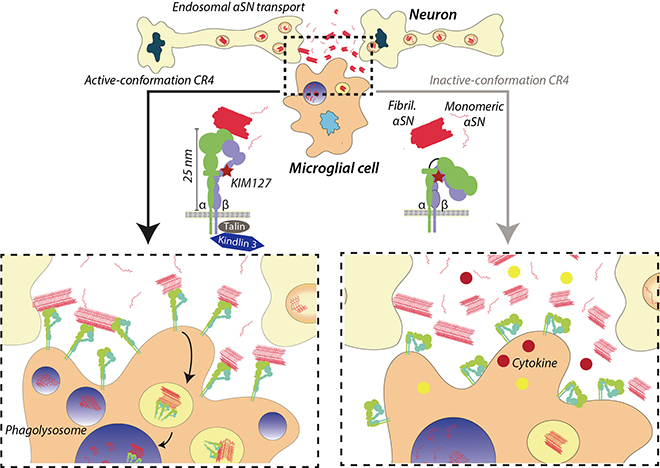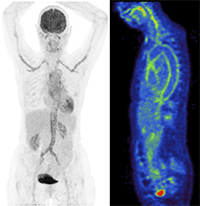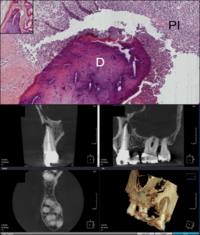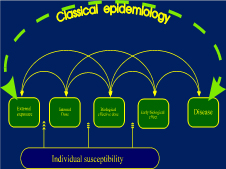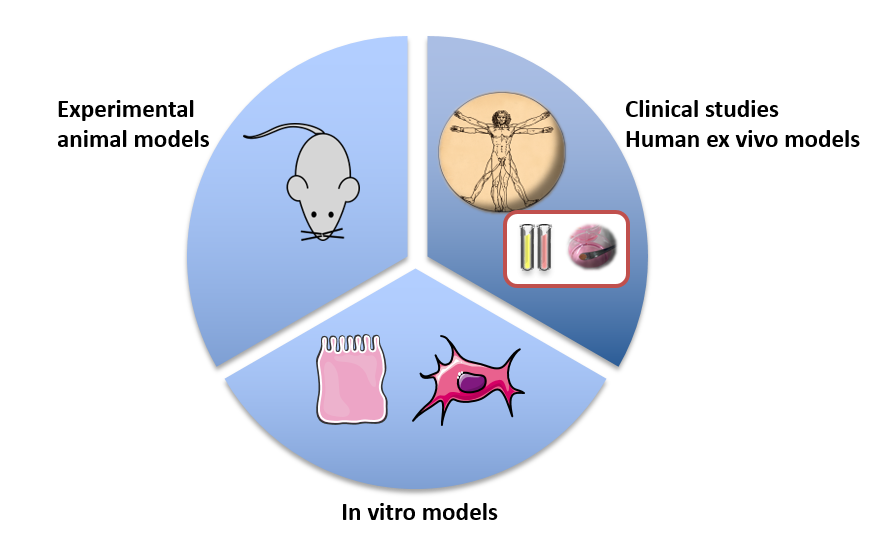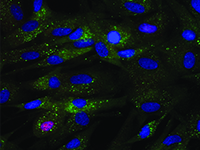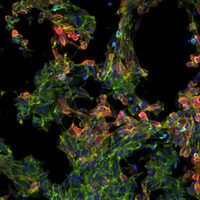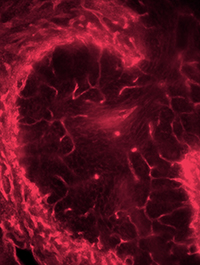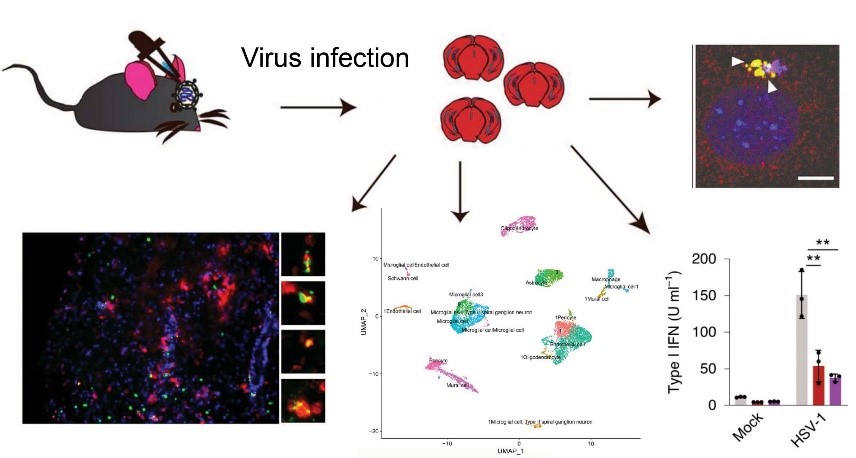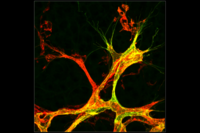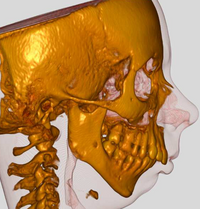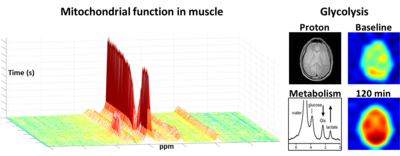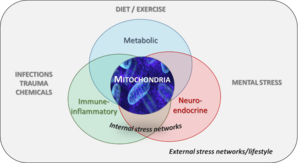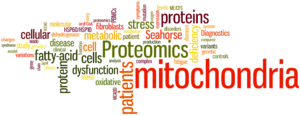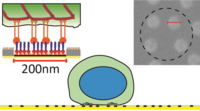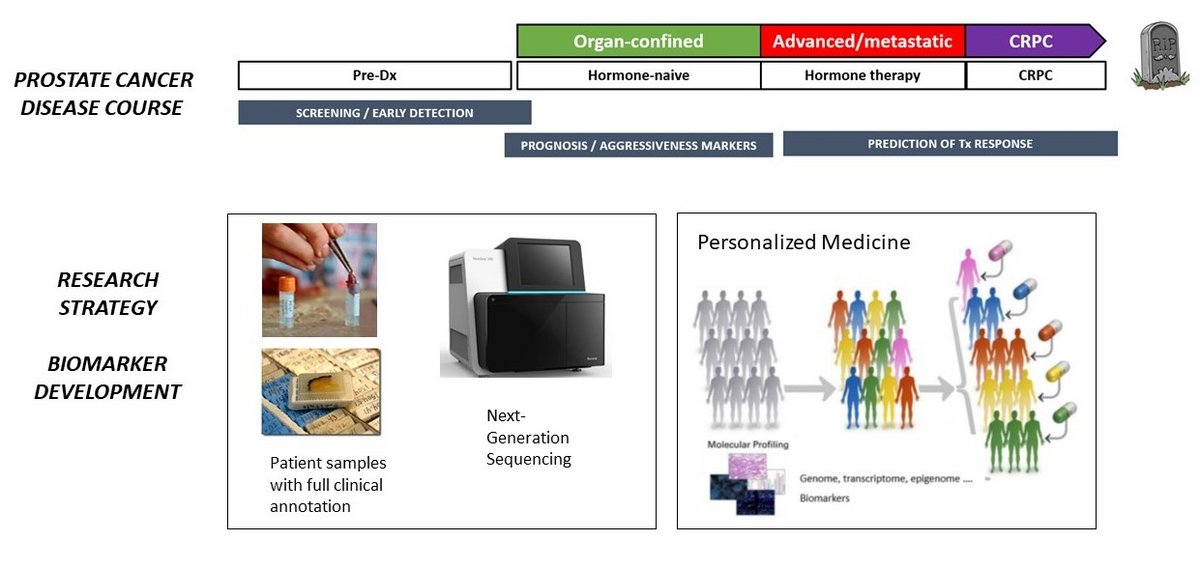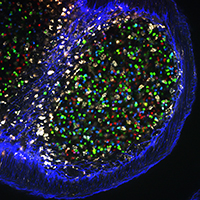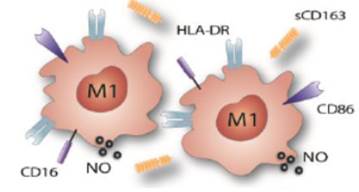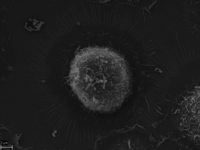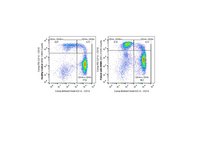Research Environments
Biophysical Immunology
Our laboratory focuses on a biophysical understanding of important molecular mechanisms in especially the innate immune system. We investigate polyvalent binding and pattern recognition in the context of complement activation, and cell adhesion and phagocytosis via complement rectors 3 & 4.
Main research areas
- Innate immunity
- Protein structure
- Phagocytosis
Contact Professor Thomas Vorup-Jensen for more information.
Clinical research in chronic rheumatic diseases
At Department of Rheumatology we focus on diagnostic accuracy, treatment efficacy, and long-term outcome for chronic rheumatic diseases. We run randomised controlled trials and cohort studies of patients with rheumatoid arthritis, spondyloarthritis, systemic lupus, systemic sclerosis and systemic vasculitis.
Main research areas
- Clinical studies in multi-center and single-center cohorts
- Randomized controlled clinical studies in multi-center designs
- Clinical epidemiology and health care studies
Contact Professor Ellen-Margrethe Hauge for more information.
Endodontic infection and inflammation
We undertake research in mapping of endodontic disease in the population. We focus on diagnostic measures and treatment of resorptive changes caused by endodontic infection and inflammation in the oral tissues.
Key Research Areas:
- Endodontic epidemiology, longitudinal population studies with risk factor assessment.
- Diagnostic accuracy, imagine modalities and histological verification.
- Treatment efficacy
Please contact Associate professor Lise-Lotte Kirkevang for more information.
Environment, occupation and health
Our research group investigate how environmental exposures from working and private life impact health. In particular, we focus on how airborne and microbial exposure affect the incidence and prognosis of chronic disease, and the mechanisms behind these effects. We identify ways to prevent disease’s caused or exacerbated by environmental exposures in the most efficient way.
We are also interested in the interactions between personal susceptibility and the environment
Key research methods
- Environmental epidemiology including generation studies
- Exposure assessment including measurements and big data
- Humans experimental exposure chamber
- Nationwide register-based research with individual level exposure data
Contact Professor Vivi Schlünssen or Professor Torben Sigsgaard for more information.
Experimental research in chronic kidney disease
Our lab studies the various aspects of chronic kidney disease (CKD), including the role of the prostaglandin system in renal inflammation as well as renal fibrosis, and we aim to unravel mechanisms of disease and to identify new therapeutic targets. Our work ranges from basic science to clinical research.
Main research areas
- Chronic kidney disease
- Inflammation
- Fibrosis
Contact Associate Professor Rikke Nørregaard for more information.
Genetics and Immunology of Infectious diseases in humans
The focus of my research is understanding differential susceptibility to severe infectious diseases in humans. We study the role of host genetics and immune responses in defense against infections, including viral herpesvirus infections of the brain as well as influenza and COVID19. By studying immunodeficiencies in patients, we hope to understand disease pathogenesis and determine which cells, intracellular signaling pathways, and immune mediators that are important to control individual infections and regulate immune responses. Collectively, the research is translational and aims at gaining novel insights into fundamental principles in human immunity against infections and at the same time use this knowledge to develop personalized medicine, including improved diagnosis, prophylaxis and treatment, to patients.
Main research areas
- Human genetics
- Primary immunodeficiencies
- Viral CNS infections
Contact Professor Trine Mogensen for more information.
Host-Pathogen Interactions In Oncovirotherapy and Viral Emerging Diseases
My research program focuses on the understanding of the early events involved in the host response to oncolytic and emerging virus infection, with the long-term objective to utilize knowledge of the host response against virus infection to develop novel therapeutic approaches for the treatment of resistant cancers and viral emerging diseases. My goal is relevant for the fundamental discovery of novel restrictive/facilitating pathways to virus infection and the translational development of novel antiviral or oncovirotherapeutic approaches directed towards the fight against viral emerging pathogens or cancer, respectively.
Main research areas:
- Oncolytic viruses
- Innate Immunology
- Viral emerging diseases
Contact Associate Professor David Olagnier for more information.
Inflammation‐induced Vascular Dysfunction
Obesity is an increasingly challenging problem worldwide. During the expansion of adipose tissue, impaired vascular remodeling promotes hypoxia and inflammation resulting in increasing occurrence of obesity‐related disorders. In my research group we study blood vessel dysfunction and extensive inflammation, as these features became clinically recognized as a life‐threatening incidence for human health.
Main research areas
- Obesity
- Inflammation
- Blood vessel dysfunction
Contact Assistant Professor Joanna Kalucka for more information.
Innate immune responses and disease pathogenesis of viral infection
The research interest of this laboratory is to understand how the immune system detects virus infections, and other types of danger, and how this leads to protective and pathological immune responses. We aim to provide new basic knowledge on how the immune system works and interacts with viruses, and how this impacts on the pathogenesis of viral infections. Such work may lead to better understanding of viral diseases and could have implications for future development of improved vaccines, antiviral therapeutics, and diagnostic tools.
Main research areas
- Innate immunology and pathogenesis of infectious and inflammatory diseases
- Virus-host interactions
- Molecular mechanisms in immunology of virus infections
Please contact Professor Søren Riis Paludan for more information
Laboratory of Angiogenesis and Vascular Heterogeneity
Our group is focusing on the molecular and cellular basis of the formation of blood vessels (angiogenesis) in health and disease. We focus on exploring the activities and roles of endothelial cells (ECs) with an immuno-modulatory role (termed "IMECs") and to investigate whether targeting IMECs can offer opportunities for "alternative immunotherapy". Furthermore, we study the metabolism, heterogeneity and, in particular, immunity of ECs.
Main research areas
- Experimental in vitro and in vivo models of angiogenesis
- EC-selective lipid nanoparticles (LNPs)
- Single-cell multi-omics
Please contact Professor Peter Carmeliet for more information
Lower face growth disturbances caused by temporomandibular joint (TMJ) inflammation
Inflammatory conditions of the TMJ in childhood can cause severe deformities of the lower face. Research taking place at the Section of Orthodontics, IOOS, Department of Oral and Maxillofacial Surgery and Department of Pediatrics, Aarhus University Hospital is focusing on the interaction of the inflammatory and condylar growth process in the TMJ in patients with juvenile idiopathic arthritis and similar TMJ conditions in growing individuals. Specific cytokines might be responsible for a disturbance in normal bone formation of the condyle and thereby for the dentofacial deformity. It is the aim to optimize treatment of the TMJ inflammation and the growth related deformity.
Main Research Areas
- Juvenile idiopathic arthritis, idiopathic condylar resorption
- TMJ deformities
- Dentofacial deformities
Please contact Clinical Professor Thomas Klit Pedersen for more information.
Metabolic magnetic resonance imaging of infectious diseases
Our core mission is to develop and translate new MR technology to researchers and clinicians to push the boundaries for excellence in magnetic resonance spectroscopy and imaging. This is obtained partly by applying traditional methods based on proton MR and more advanced methods based on other nuclei. Methods which could serve as biomarkers in diagnostics of brain, lung, and skeletal muscle complications from having a COVID19 infection. At this point we can determine metabolism in the cell glycolysis, mitochondrial function, and oxygen transfer in lung tissue. Parameters of great value when untangling the complexities of infectious diseases.
Main research areas
- Magnetic resonance imaging
- Metabolic imaging
- Non-invasive clinical studies
Please contact Christoffer Laustsen for more information.
Mitochondria in Health and Disease: Metabolism, Protein expression, Signaling
Research in our group focuses on the roles of mitochondria in diseases spanning from rare monogenic diseases to common diseases. We study among other things gene variations, protein expression (proteomics), metabolic function (Seahorse), and stress signaling to reveal disease mechanisms and improve diagnostics. With these methods we analyze mitochondrial phenotypes in cell and animal models, immune cells (PBMCs) and tissue samples.
Key Research Areas
- Mitochondrial metabolisms
- Stress signaling
- Biomarker discovery
Contacts on project:
Rikke Katrine Jentoft Olsen (rikke.olsen@clin.au.dk)
Nanobiointerfaces Group: Controlling ligand presentation at the nanoscale
Our materials based research group develops cell culture substrates with defined ligand patterns at the nanometer/molecular scale to understand microenvironmental signaling cues in steering cellular responses. We apply this generic platform technology in house and through collaborations in many cell systems. In particular we study the role of ligand presentation in cellular adhesion complex formation and signaling in immune cells during recognition and activation.
Main research areas
- Materials tools to study cellular interactions
- Cellular adhesions
- Cellular signaling patterns
Please contact Professor Duncan Sutherland for more information
Prostate cancer research group at MOMA
Our research focuses on prostate cancer and personalized medicine. We use e.g. next generation sequencing for molecular profiling of tumor, blood, and urine samples from patients. We also run clinical trials. The overall aim is to develop novel biomarkers and obtain new insights into tumor biology.
Main research areas
- Prostate cancer
- Personalized medicine
- Tumor biology
Contact Professor Karina Dalsgaard Sørensen for more information or read more at the MOMA website.
The Laboratory for Lymphocyte Biology
Our research group focuses on the role of B and T lymphocytes in health and disease, with a particular emphasis on tolerance and autoimmunity. B and T lymphocytes are the main constituents of the adaptive immune system, a branch of the immune system with the remarkable abilities of ‘learning’ and ‘memory’. We investigate these phenomena in mouse models and patient‐derived samples, leveraging a combination of molecular techniques, flow and imaging cytometry, and advanced microscopy. Our work has implications for the development of treatments for autoimmune diseases, cancer, and infectious diseases, as well as vaccine design.
Main research areas
- Experimental models of autoimmunity
- In vitro assays of human B and T cell function
- Two‐photon microscopy
Contact Assistant Professor Søren Egedal Degn for more information.
The role of macrophages in inflammation
Development and use of macrophage biomarkers in disease (e.g. CD163, CD206, SIRPα). Targeting drugs to macrophages (polarisation, Immunotherapy, checkpoints, myeloma, microenvironment) Assays (Multiplex, ELISA, Flowcytometry, Nanosight, LCMS, Automation, ddPCR)
Main research areas
- Assay validation
- Biomarker discovery
- Targeted therapy
Contact Professor Holger Jon Møller for more information.
Skin microbiome in health and disease
We are investigating the human microbiome and its host-beneficial and -detrimental roles. We focus on skin bacteria, mainly cutibacteria, staphylococci and corynebacteria, and study their functional involvement in skin disorders as well as deep tissue and implant-associated infections, but also elucidate their roles as guardians of skin health.
Main research areas
- Skin microbiome
- Bacterial infections
- Bacterial genetics and genomics
Please contact Associate Professor Holger Brüggemann for more information
Translational research in MS: Immunology and Virology
Translational research in the pathogenesis of MS, NMOSD, and polyautoimmunity. We focus on regulation/levels of subsets of immune cells, and association of HERVs and certain herpesviruses with the diseases. We are also interested in epigenetic regulation of key factors in MS.
Main methods are FC, qPCR, microscopy, cellular assays, and ELISA.
The main goal is to gain sufficient insight in the pathogenesis to optimize individual therapeutics for patients.
Main research areas
- Immuno-pathogenesis
- Immuno-virology
- Biomarkers
Contact Associate Professor Tove Christensen for more information
